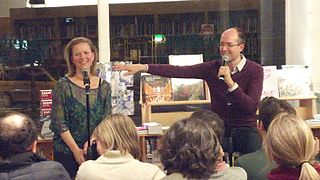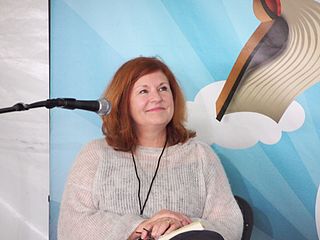A Quote by Amity Gaige
Reading while I'm writing ideally inspires my competitive side. When I read great writers, I want to be a better writer.
Related Quotes
Plate glass... has no beauty of its own. Ideally, you ought not to be able to see it at all, but through it you can see all that is happening outside. That is the equivalent of writing that is plain and unadorned. Ideally, in reading such writing, you are not even aware that you are reading. Ideas and events seem merely to flow from the mind of the writer into that of the reader without any barrier between. I hope that is what is happening when you read this book
I read continually and don't understand writers who say they don't read while working on a book. For a start, a book takes me about two years to write, so there's no way I am depriving myself of reading during that time. Another thing is that reading other writers is continually inspiring - reading great writers reminds you how hard you have to work.
I learned to write from reading. I had no writing classes. It's part of my thinking as the writer-author, reading, but then I also want to bring this into my characters, who also read and think. There's that great quote from Virginia Woolf - it's very simple: "...books continue each other." I think when you're a writer, you're also, hopefully, a reader, and you're bringing those earlier works into your work.
While reading writers of great formulatory power — Henry James, Santayana, Proust — I find I can scarcely get through a page without having to stop to record some lapidary sentence. Reading Henry James, for example, I have muttered to myself, "C’mon, Henry, turn down the brilliance a notch, so I can get some reading done." I may be one of a very small number of people who have developed writer’s cramp while reading.
No one can teach writing, but classes may stimulate the urge to write. If you are born a writer, you will inevitably and helplessly write. A born writer has self-knowledge. Read, read, read. And if you are a fiction writer, don't confine yourself to reading fiction. Every writer is first a wide reader.
No one can teach writing, but classes may stimulate the urge to write. If you are born a writer, you will inevitably and helplessly write. A born writer has self-knowledge. Read, read, read. And if you are a fiction writer, dont confine yourself to reading fiction. Every writer is first a wide reader.
It's not possible to advise a young writer because every young writer is so different. You might say, "Read," but a writer can read too much and be paralyzed. Or, "Don't read, don't think, just write," and the result could be a mountain of drivel. If you're going to be a writer you'll probably take a lot of wrong turns and then one day just end up writing something you have to write, then getting it better and better just because you want it to be better, and even when you get old and think, "There must be something else people do," you won't be able to quit.
THE WRITER can get free of his writing only by using it, that is, by reading oneself. As if the aim of writing were to use what is already written as a launching pad for reading the writing to come. Moreover, what he has written is read in the process, hence constantly modified by his reading. The book is an unbearable totality. I write against a background of facets.
In company with people of your own trade you ordinarily speak of other writers' books. The better the writers the less they will speak about what they have written themselves. Joyce was a very great writer and he would only explain what he was doing to jerks. Other writers that he respected were supposed to be able to know what he was doing by reading it.
Writers are great lovers. They fall in love with other writers. That's how they learn to write. They take on a writer, read everything by him or her, read it over again until they understand how the writer moves, pauses, and sees. That's what being a lover is: stepping out of yourself, stepping into someone else's skin.
Salinger is such a terrific writer; he did so many great things. He is one of those writers that I still reread, simply because he makes me see the possibilities and makes me feel like writing. There are certain writers who put you in the mood to write. In the way a whiff of a cigar will bring back memories of a ballgame on a Saturday afternoon, reading Salinger makes me want to get to the typewriter.





































